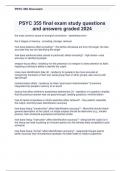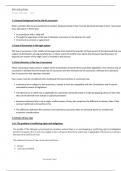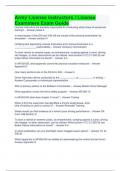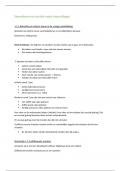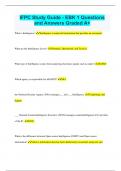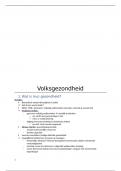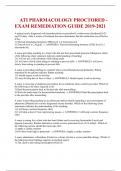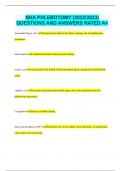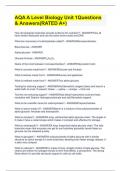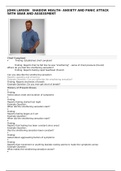Examen
PSYC 355 final exam study questions and answers graded 2024
- Cours
- Établissement
the most common cause of wrongful convictions - eyewitness error the 3 stages of memory - encoding, storage, retrieval how does distance affect encoding? - the farther witnesses are from the target, the less accurate they are are identifying the target how does emotional state (stress in p...
[Montrer plus]
